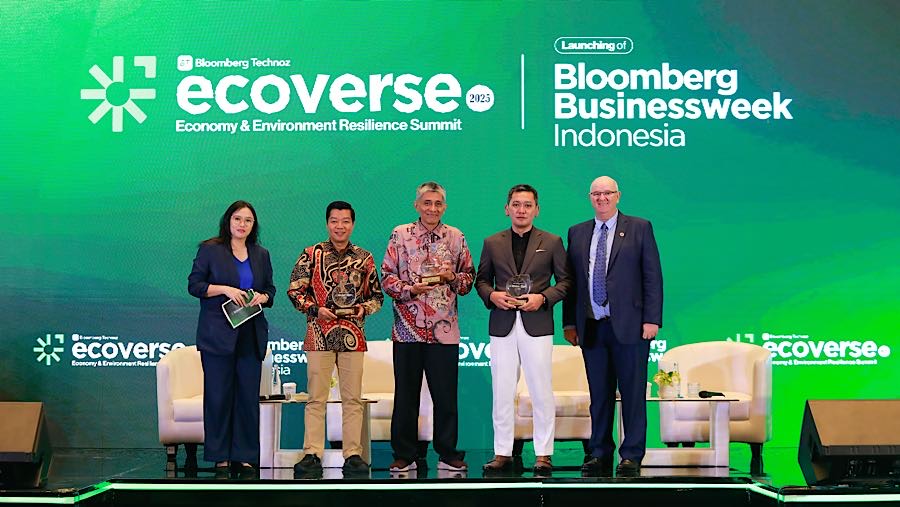THE RACE TOWARD INDONESIA’S BIOFUEL LEADERSHIP
Indonesia’s ambition to become a global biofuel powerhouse took center stage at Ecoverse 2025, an event that brought together policymakers, academics, industry players, and energy experts to discuss the nation’s long term energy transition roadmap. The forum highlighted Indonesia’s growing determination to establish itself as the world’s leading producer and exporter of biofuels, backed by years of development, large scale plantations, and renewable energy policies.
At the heart of the discussion were Indonesia’s long standing biodiesel programs, including B30 and the planned expansion to B40 and beyond. Industry leaders and government officials emphasized that biofuel is not only an energy solution but also a strategic national asset. The program demonstrates how Indonesia’s palm oil industry can evolve from raw commodity exports to high value downstream products that accelerate domestic energy resilience.
INDONESIA’S BIOFUEL PUSH ROOTED IN ENERGY SECURITY
Speakers at the event shared insights into Indonesia’s rapid shift toward renewable energy sources, driven by a desire to cut reliance on imported fossil fuels. The government’s focus on biofuel aligns with broader national goals to stabilize fuel prices, expand job opportunities, and strengthen the rural economy. With crude oil imports reaching billions of dollars annually, increasing biofuel production offers Indonesia a viable alternative that leverages its vast natural resources.
Experts noted that Indonesia’s longstanding experience with palm based biodiesel gives it an edge over competitors. The B30 program, which mandates 30 percent biodiesel blending, has already been widely implemented. Plans for B40 and B50 are being prepared, supported by research institutions and private sector investment. The event highlighted that scaling up production will require coordination across plantations, refineries, logistics networks, and export channels.
BIOFUEL EXPORT POTENTIAL AND GLOBAL MARKET AMBITIONS
One of the main topics discussed at Ecoverse 2025 was Indonesia’s potential to dominate global biofuel exports. Several experts said the country is well positioned to become a top supplier of sustainable fuels, especially as demand rises in Europe, China, India, and other developing markets. The global shift away from conventional fossil fuels presents an opportunity for Indonesia to capture larger market share.
Participants also discussed ongoing efforts to strengthen Indonesia’s sustainability certification. Global buyers increasingly require strict compliance with environmental and ethical standards, which Indonesia aims to meet through improved traceability and stronger land use policies. The forum emphasized that achieving world leadership in biofuel will depend not only on production volume but also on meeting global expectations for responsible sourcing.
TECHNOLOGY, RESEARCH, AND PRIVATE SECTOR COLLABORATION
Ecoverse 2025 highlighted how technology and innovation will play a critical role in Indonesia’s journey toward becoming the world’s biofuel leader. Industry researchers shared progress in converting biomass waste into advanced biofuels, as well as emerging biorefinery technologies that could drastically increase efficiency. Universities and research institutions are conducting studies on alternative feedstocks, such as algae and agricultural waste, that could complement palm based biodiesel.
The private sector remains a key partner in scaling production. Several large energy companies, palm oil producers, and chemical manufacturers are investing in advanced processing facilities. Stakeholders at the event stressed that public private partnerships will be essential to achieve long term sustainability and competitiveness in global markets.
CHALLENGES AHEAD AND THE PATH FORWARD
While Indonesia’s biofuel ambitions are strong, speakers acknowledged the challenges that lie ahead. These include fluctuations in global palm oil prices, the need for more sustainable land management, and improving infrastructure to support large scale distribution. Critics have raised concerns regarding environmental impacts and deforestation, issues that Indonesia continues to address through updated policies and improved monitoring mechanisms.
During the event, policymakers assured that Indonesia aims to balance economic growth with environmental protections. They emphasized that the future of biofuel depends on maintaining sustainable practices, increasing transparency, and leveraging innovation to reduce emissions throughout the supply chain.
INDONESIA’S LONG TERM VISION FOR BIOFUEL LEADERSHIP
Ecoverse 2025 concluded with a strong message: Indonesia’s vision of becoming the king of biofuel is not merely a slogan but a strategic national priority. With the right mix of policy support, technological advancement, sustainable practices, and cooperation across industries, Indonesia has the potential to lead global renewable energy markets.
The discussions at the event made it clear that biofuel will continue to be a cornerstone of Indonesia’s energy transformation. As global demand for sustainable energy grows, Indonesia’s leadership in biofuel could significantly shape the future of renewable energy in the region and beyond.
Read More






 Wednesday, 04-03-26
Wednesday, 04-03-26







